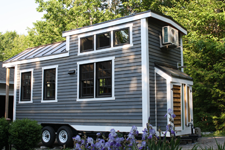 *Asked and Answered
*Asked and Answered
Asked – Our HOA has recently started receiving architectural applications from owners who wish to install either an accessory dwelling unit (“ADU”) or junior accessory dwelling unit (“JADU”) upon their separate interest. However, our Board of Directors is concerned about the impact of additional traffic within the development and diverging initial intent of our community. Can our architectural committee (“ARC”) deny the applications on that basis?
Answered – Unlikely. On January 1, 2020, California Civil Code section 4751 (“Civil Code 4751”) went into effect and made sweeping changes to the way in which associations may limit its membership from constructing accessory dwelling units or junior accessory dwelling units. Specifically, Civil Code 4751 rendered void and unenforceable any provision of an association’s governing documents that “effectively prohibits or unreasonably restricts the construction or use of an accessory dwelling unit or junior accessory dwelling unit on a lot zoned for single-family residential use.”
Additionally, local governmental agencies will be required to process applications within sixty (60) days of their submission. (Govt. Code § 65852.2(b).) Moreover, some applications can receive ministerial approval. (Govt. Code § 65852.2(e).) That means the permit requests can be approved without a hearing notwithstanding any local ordinance regulating the issuance of variances or special use permits. Provided the application for the ADU complies with requirements, the local governmental agency is required to approve the permit as a matter of right. No discretion exists for permit applications that satisfy the governmental requirements.
In addition to the foregoing, Governor Gavin Newsom signed Assembly Bill 3182 (“AB 3182”) on September 28, 2020, which significantly limits the extent to which HOAs may impose rental restrictions and prohibitions. Under AB 3182, the newly codified Section 4741 of the California Civil Code renders void and unenforceable any provision in a governing document (or amendment thereto) “that prohibits, has the effect of prohibiting, or unreasonably restricts the rental or leasing of any of the separate interests, accessory dwelling units, or junior accessory dwelling units in that common interest development to a renter, lessee, or tenant.”
Considering the foregoing, the Association’s discretion in approving and denying ADU and JADU applications have been greatly limited. However, Civil Code Section 4751 does not apply to provisions of an association’s governing documents that impose “reasonable restrictions” on accessory dwelling units or junior accessory dwelling units.
“Reasonable restrictions” within this context refer to restrictions that do not unreasonably increase the cost to construct, effectively prohibit the construction of, or extinguish the ability to otherwise construct, an accessory dwelling unit or junior accessory dwelling unit consistent with the provisions of Government Code Sections 65852.2 or 65852.22. (Civ. Code § 4751(b).) The types of reasonable restrictions on ADUs and JADUs are set forth in Government Code Sections 65852.2 and 65852.22, respectively.
As a result, and to ensure that the Association has a degree of discretion, at least regarding aesthetic features, such as appearance, materials, height, and other visuals, we recommend that the Association work with an architect to prepare and establish architectural guidelines for ADUs and JADUs consistent with the new law. Once created, we then recommend that the Association adopt relevant operating rules or an ADU/JADU policy that will serve to effectuate the restrictions on ADUs and JADUs that are permissible under AB 3182 and incorporate the new architectural guidelines.
| Contact your HOA attorney to conduct an in-depth analysis of the specific ADU and JADU requirements in your specific county and to prepare related ARC Policies. |
-Blog post authored by TLG Attorney, Corey L. Todd, Esq.
 HOA Lawyer Blog
HOA Lawyer Blog

